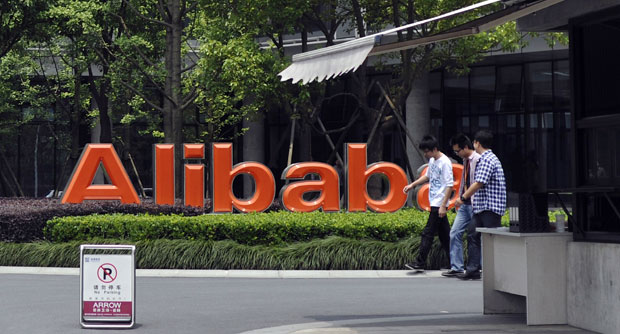China’s new tech giants show old bias with porn stars

File photo of the headquarters compound of Alibaba Group in Hangzhou in eastern China’s Zhejiang province. AP
HANGZHOU, China – E-commerce giant Alibaba sought job applicants with porn star attributes and other tech firms host adult video starlets: China’s new economy powerhouses are not immune from old-style sexism.
Chinese Communist leader Mao Zedong declared that “Women hold up half the sky,” but academics say the world’s most populous country is still far from gender equality, even in the modern and fast-growing technology sector.
Facebook chief operating officer Sheryl Sandberg’s 2013 book “Lean In” — which talks about women’s career struggles — has been published in translation in China, but failed to spark the same heated debate as in the United States.
Gender inequality
“In mainstream (Chinese) society, there is objectification of women and gender inequality,” said Wang Ping of the Zhejiang Academy of Social Sciences.
“It might be more serious in technology companies,” he said, citing more men working in technical fields in the trillion-dollar industry.
Nasdaq-listed online marketplace JD.com triggered online outrage in May when it promoted International Nurses Day with images of health workers in lingerie-like uniforms.
“I will never buy things from JD again. What disgusting behavior!” one woman wrote.
“This is just the corporate culture of JD,” said another poster.
The firm quickly yanked the ad and apologized.
Chinese authorities detained five feminist activists for over a month earlier this year after they planned to hand out leaflets about sexual harassment on public transport.
China has seen no court case like that of Ellen Pao, whose unsuccessful gender discrimination action against her former venture capital employer become a proxy trial of sex bias in Silicon Valley.
‘Teacher Aoi’
Instead, Chinese technology companies have a history of inviting Japanese adult film stars to events. Although authorities ban online content they consider pornographic, illegal downloads have given some adult film actresses massive followings in the country.
Internet technology company NetEase invited Anri Okita to its offices in 2013, when she ate lunch and took photos with male staff. Shanghai-based gaming company Dream invited Yui Hatano to its annual company party last year, while Internet security company Qihoo 360 hosted Rola Takizawa.
An advert for support staff for computer programmers on Alibaba’s official recruitment website mentioned porn star Sola Aoi — who has nearly 16 million followers for her Chinese microblog.
“You can be like ‘Teacher Aoi’ whose virtue and skills comprise a doubly strong and pervasive fragrance, the world in her breast,” the ad read.
Alibaba apology
“You can be like Song Hye Kyo, from a respectable family, a heavenly beauty, who makes fish sink and birds alight, who obscures the moon and makes flowers blush,” it said, referring to a mainstream South Korean actress.
Alibaba removed the ad and apologized following criticism.
It was “intended to be an attempt at humorous marketing to recruit IT talent”, the company said in a statement. “We apologize to anyone offended.
“Alibaba is committed to providing equal opportunity and fair treatment to all employees on the basis of merit, without discrimination,” it added.
But an online poster using the name Joey Ultraman said: “If Alibaba dared post this stupid little ad in America… the gender discrimination lawsuits would pursue it to the end of the earth.”
‘Secret sauce’
In fact the advert contrasted with Alibaba’s place among the most open and active firms in both hiring women and putting them in positions of leadership.
Alibaba had almost 35,000 employees by the end of March, and according to the company more than 40 percent of its employees are female as well as nearly 35 percent of management.
The figures put the Chinese firm ahead of even the global curve.
US technology giant Apple said last year that 30 percent of its 98,000 workforce was female.
Worldwide, it estimates that 80 percent of the technology sector is male and 20 percent female, with the ratio improving to 72/28 for leadership posts.
Proud
“I feel proud more than 34 percent of senior management are women,” Alibaba founder Jack Ma told reporters after the company’s first “Women and Entrepreneurship” conference in May.
“This is the secret sauce of the company,” he said.
Alibaba’s chief financial officer and chief customer officer are women, as is its head of human resources, Lucy Peng.
She does not expect praise at work just because she is a woman, she told the conference, even though Ma often praises the gender in general.
“Whenever I hear him speaking like this, I have no special feelings,” she said. “We’re just conscientiously, steadily, doing our jobs.”